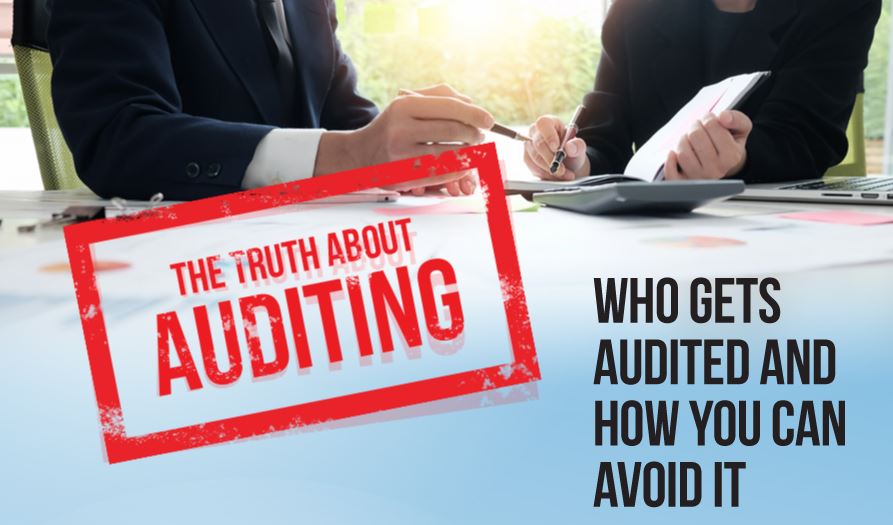
How They Choose Who Gets Auditted
The IRS auditing process is totally random. A statistical formula compares your tax return to those considered normal in your similar tax situation. If it detects a deviation, the return gets flagged.
In 2017, the percentage of audited returns was 0.62% the lowest since 2002.
People most likely to be audited are those with no income and those making more than $1 million. People with moderate incomes are less likely to be audited, but it’s still important to keep excellent records, since the process is random.
Make yourself less likely to get audited this season
WATCH OUT FOR:
Paper Returns: Paper returns are over 40 times more likely to have an error, and pique the interest of the IRS.
Irrelevant Business Expenses: Determine if the good or service is necessary to your job before you claim it.
Unrealistic Home-Office Deductions: Only claim what is entirely dedicated to your work life.
Claiming Repeated Losses: If you’re self-employed and claim losses for three consecutive years, the IRS might consider your gig a hobby.
Large Charitable Contributions: Earning $50,000 yearly and claiming a $15,000 donation might raise some eyebrows at the IRS.
Excluding 1099 Income: Do you freelance? Remember to claim your side hustle income!
Perfect Numbers: Round numbers are rare in finances, and may result in a call from the IRS.
WATCH OUT AT THE STATE LEVEL! State tax revenue agencies will look for errors too—state returns should be handled just as carefully.
Home Selling Resources
| Complete Guide to Home Selling | Get a Free Consultation on Selling Your Home |
| 10 Tips to Selling Your Home | How to Prepare Your Home for Sale |
| Find Out What Your Home is Worth |
Home Buying Resources
| Search Homes For Sale Now | View Open House List |
| Home Buying Process – A Complete Guide | 7 Tips to Home Buyer Success |
| Free Home Buyer Consultation | Why You Need A Buyers Agent |

